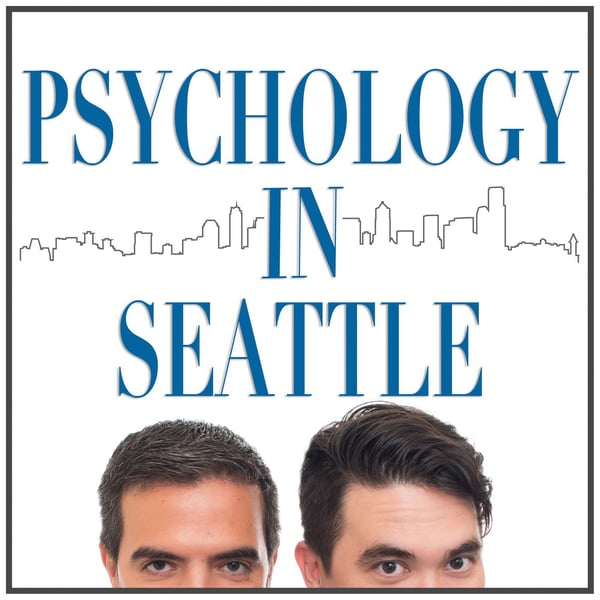Overfunctioning, Avoidant Annie, and Preoccupied Pete
Psychology In Seattle Podcast
Kirk Honda
4.6 • 1.2K Ratings
🗓️ 13 July 2020
⏱️ 58 minutes
🧾️ Download transcript
Summary
Sponsored by https://www.betterhelp.com/seattle
Become a patron of our podcast by going to https://www.patreon.com/PsychologyInSeattle
Email: https://psychologyinseattle.squarespace.com/contact
The Psychology In Seattle Podcast.
This content is for educational and informational purposes only. Although Kirk Honda is a licensed marriage and family therapist, this content is not a replacement for proper mental health treatment. Always seek the advice of your mental health provider regarding any questions or concerns you have about your mental health needs.
This show is part of the Spreaker Prime Network, if you are interested in advertising on this podcast, contact us at https://www.spreaker.com/show/3269717/advertisement
Transcript
Click on a timestamp to play from that location
| 0:00.0 | Hey deserving listeners, I thought I would answer patron emails. |
| 0:03.1 | This first one is about the concept of over-functioner versus under-functioner. |
| 0:08.0 | This is a Boanyan therapy concept, family systems therapy concept that I have to talk about and they in the email say, |
| 0:17.3 | I'm really interested in your over-functioner under-functioner dynamic in the over-function or under-function or dynamic. |
| 0:24.0 | Those parts really stick out to me in your videos when you talk about it. |
| 0:28.0 | In your career, have you seen if the over-function or under-function or |
| 0:32.0 | under-function or relationship, |
| 0:33.0 | can they work? Is it common? |
| 0:35.0 | Is it unhealthy by nature? |
| 0:36.6 | Is there a way to work through this? |
| 0:38.9 | Okay, so let's go in, end of email. |
| 0:40.5 | Let's go into it here. |
| 0:42.2 | So the way that I can describe it is that all |
| 0:45.3 | couples have a dilemma. They want closeness, they want warmth, they want love, |
| 0:49.5 | but they also want their independence, they want to voice their own ideas, |
| 0:56.7 | even when it's in opposition to what their spouse is saying. |
| 1:00.6 | And so sometimes these two forces are in conflict and this is the |
| 1:05.0 | central conflict that is at the the foundation of Boanyan theory that we we want to |
| 1:11.7 | be close but we also want to be separate at times. |
| 1:15.0 | And so when things are going well, then we will flexibly move between those two forces of merging with other people when we're in love and separating from people |
| 1:25.9 | when there's tension and when we want to think for ourselves. So let me give it an example. So parents with children, they will often conflict about how to raise their kids. |
| 1:39.0 | And so each parent might have a different idea about what to do. |
... |
Please login to see the full transcript.
Disclaimer: The podcast and artwork embedded on this page are from Kirk Honda, and are the property of its owner and not affiliated with or endorsed by Tapesearch.
Generated transcripts are the property of Kirk Honda and are distributed freely under the Fair Use doctrine. Transcripts generated by Tapesearch are not guaranteed to be accurate.
Copyright © Tapesearch 2025.

